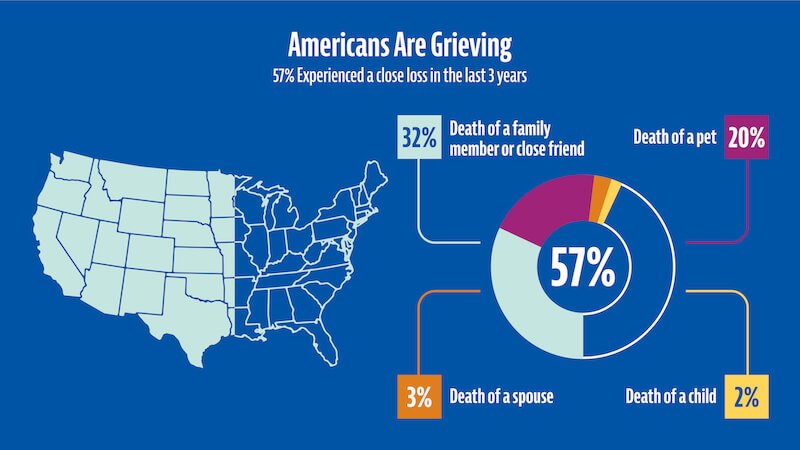Friendship & Grief: Ditch The Platitudes
It is no longer uncommon to hear about my peers, friends, and co-workers experiencing the loss of a parent, mainly as I age but also due to the impacts of COVID-19. As a primary caregiver for both of my aging and ill parents, this hits close to home. It is also no longer uncommon to hear about my community experiencing debilitating or life-threatening illness, the loss of lifelong animal companions, or other forms of deep grief.
I experienced the shock of death within my family at a young age– too young to understand grief and too quickly to know the slow, anxious march of aging loved ones. My friend lost his mother several months ago. Though typically a pretty quiet, “happy-go-lucky” guy, he has been posting about his recent experience with grief lamenting specifically about platitudes while seeking support.
Common Platitudes Of Grief
Time heals all wounds;
She left us all too soon;
It was meant to be;
He's in a better place;
At least they’re not suffering now;
This is just a test.
Do any of these sound familiar? I have always tried to avoid cliche sayings but never considered their impact before. Reflecting on my friend’s feelings, I have experienced first-hand the irritation of such platitudes as I face the aging and loss of my own parents. Grief does not only come after loss. It sometimes approaches slowly, growing nearer at an agonizing pace. We watch and we process what may come, what will come, and how it will arrive. Grief sometimes manifests through ambiguous change, remaining evasive and nameless as we continue to hold onto something.
Why are platitudes so harmful? They are rarely about the recipient as much as the provider. They also tend to be condescending or at least reductive. Platitudes are toxic for your mental health.
Show Support & Maintain Friendship During Grief
Greif re-writes your address book. I’ve seen this saying in countless posts. Even if you hear these cliche expressions from someone experiencing grief, consider that they may not be ready to deal with their feelings of loss, and they have learned the same (flawed) tools for coping as everyone else. Also, consider a few authentic ways to show your support.
1. Offer Specific Ways To Help
Open-ended offers often come across as meaningless. People in the midst of grief cannot figure out what they need until someone spells it out. Also, writing it down on a card or in an email serves as a prompt since they may not remember the initial offer. First and foremost, offer things you are willing and able to do.
2. Share A Memory
Sometimes sharing a story, a memory of an event, or a photo you have of a loved one can be more meaningful. However, try to be aware of the mood and reaction you receive. Some people have complicated relationships with their family members and may experience dissonant grief. This manifests as a conflict between the way they experience their grief internally and the way they express it outwardly, which produces a persistent discomfort. The “dissonance” or conflict may be due to family, cultural or social traditions. If you do not receive an engaging response as you try to share a memory, stop sharing and move on or try to offer support in another way.
3. Do Nothing
Listen. Be present. Serve. Visit or call with no agenda. Send a text or email to check in without expecting a response. Time and space are important aspects of healing; however, so is companionship. Don’t force it, though. Gentle reminders will help your loved one feel less isolated while addressing their own needs.
Please share your stories about showing or receiving support in small or large ways as you or a loved one was navigating grief. Your stories matter.



